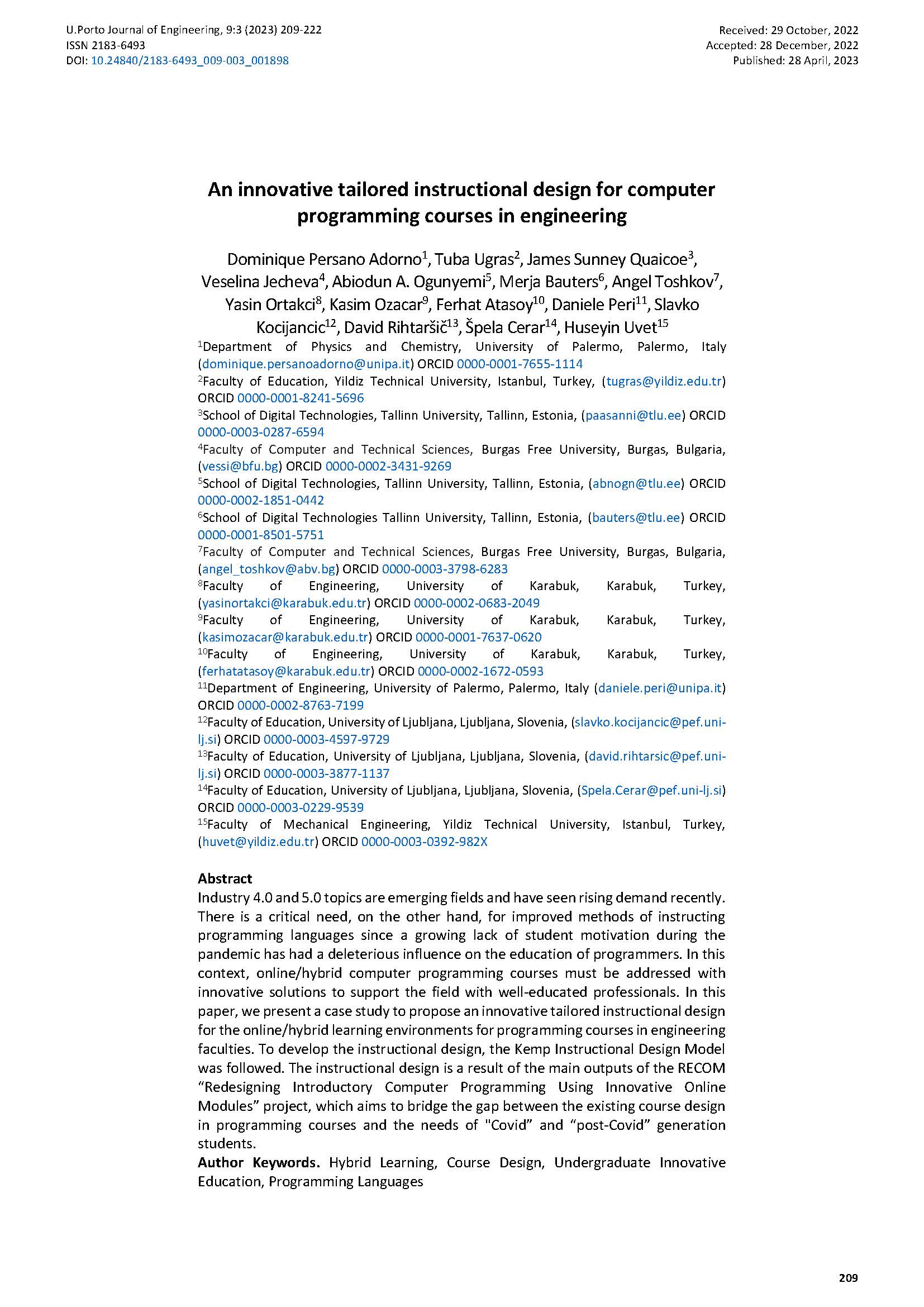An innovative tailored instructional design for computer programming courses in engineering
Main Article Content
Abstract
Industry 4.0 and 5.0 topics are emerging fields and have seen rising demand recently. There is a critical need, on the other hand, for improved methods of instructing programming languages since a growing lack of student motivation during the pandemic has had a deleterious influence on the education of programmers. In this context, online/hybrid computer programming courses must be addressed with innovative solutions to support the field with well-educated professionals. In this paper, we present a case study to propose an innovative tailored instructional design for the online/hybrid learning environments for programming courses in engineering faculties. To develop the instructional design, the Kemp Instructional Design Model was followed. The instructional design is a result of the main outputs of the RECOM “Redesigning Introductory Computer Programming Using Innovative Online Modules” project, which aims to bridge the gap between the existing course design in programming courses and the needs of "Covid” and “post-Covid” generation students.
Downloads
Article Details

This work is licensed under a Creative Commons Attribution 4.0 International License.
Authors who publish with this journal agree to the following terms:
- Authors retain copyright and grant the journal right of first publication with the work simultaneously licensed under a Creative Commons Attribution License that allows others to share the work with an acknowledgement of the work's authorship and initial publication in this journal.
- Authors grant the journal the rights to provide the article in all forms and media so the article can be used on the latest technology even after publication and ensure its long-term preservation.
- Authors are able to enter into separate, additional contractual arrangements for the non-exclusive distribution of the journal's published version of the work (e.g., post it to an institutional repository or publish it in a book), with an acknowledgement of its initial publication in this journal.
- Authors are permitted and encouraged to post their work online (e.g., in institutional repositories or on their website) prior to and during the submission process, as it can lead to productive exchanges, as well as earlier and greater citation of published work (See The Effect of Open Access).

